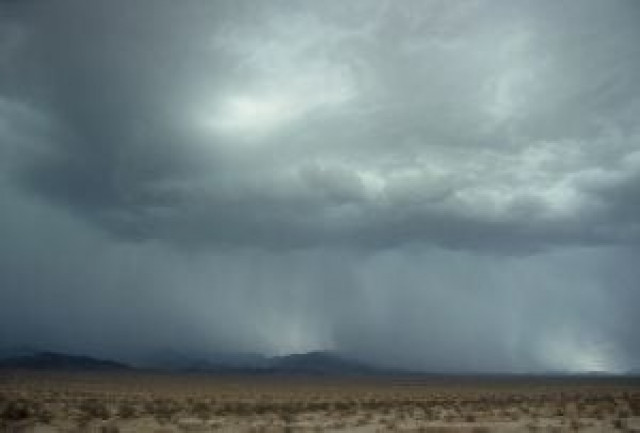Early forecasting system to lessen damages urged
Experts for better infrastructure to back preparedness in case of floods.

The monsoon has arrived again and the country is still reeling from the last year’s catastrophic floods. While the people and the government pray to avoid a repeat of last year, experts and analysts gathered to discuss the lessons learnt from the disaster on its first anniversary. Far away from the pain of those who struggle to bring their lives back to normal, various events were held in the capital where the failure of government, future strategies and areas of attention were highlighted.
Among these, a discussion titled “Pakistan: A year after floods 2010” was organised by Sustainable Development Policy Institute (SDPI).
As the “reach and sustainability” of the rehabilitation work in the flood-affected districts remains questionable, experts urged for establishment of an early forecasting system to minimise the loss in such circumstances in the future.
Former chairman of National Disaster Management Authority (NDMA) Lt-Gen Nadeem Ahmad, Chief Executive of Strengthening Participatory Organization (SPO) Naseer Memon, Adviser, Meteorology and Climate Affairs Dr Qamaruz Zaman Chaudhry and Recovery Adviser, United Nations Development Programme (UNDP) Zafar Iqbal along with others took part in the discussion.
In his opening remarks, Dr Abid Suleri stressed the need for policy which can reduce the impacts of disasters. He urged the need for right sets of policies, mechanisms and self-reliance. “As a nation, we need to be collectively prepared to deal with both natural and policy-led disasters and should not solely remain dependent on external sources of support,” he stressed.
However, the constructive role played by the local communities and international donors cannot be forgotten in the context of the 2010 floods.
As pointed by Lt-Gen (retd) Nadeem Ahmad, where the state was taken aback by the magnitude of the disaster, locals stepped in to help the people in distress.
He underscored the revival of agriculture and provision of shelter as the most important facets of the rehabilitation process. Talking of major challenges ahead, he said frequency of disasters is increasing with every passing day whereas the capability to tackle them is diminishing. “Disaster-resilient structures and communities, lack of political and bureaucratic will, capacity and financial resources and overwhelming focus on Khyber-Pakhtunkhwa while neglecting the southern areas of the country are some of the key future challenges,” he said.
The retired general was of the view that weak institutional arrangement, faulty engineering structures and poor fund mobilisation strategy of the government badly affected the reconstruction plans.
The absence of local government system caused serious barriers in the process, he added.
Moreover, Dr Qamaruz Zaman Chaudhry explained that the unusual interaction of two weather systems, during 27-29 July and 2-9 August, last year caused massive rainfall and flooding in Pakistan. He said that shifting of westerly wave and its interaction with the easterly wave coupled with jet stream stagnation for over two weeks led to heavy rainfalls and flooding. He clarified that widespread rainfall was predicted by Metrological department as they issued advisories on 26 and 27 July, 2010.
“Numerous challenges lie ahead for the country and the need for establishment of comprehensive infrastructure to forecast such calamities is the need of the hour,” he said.
Dr Chaudhry added Integrated Flood Forecasting and Management System, Localised Flash Flood Forecasting and Warning System, Regional Flood Forecasting Centres in all provinces, Integrated Flood Forecasting System supported by Regional Flood Forecasting Centre and Localised Flash Flood Warning Centres and Radar Network were some of the facilities which could help in better preparedness.
Published in The Express Tribune, July 28th, 2011.



















COMMENTS
Comments are moderated and generally will be posted if they are on-topic and not abusive.
For more information, please see our Comments FAQ